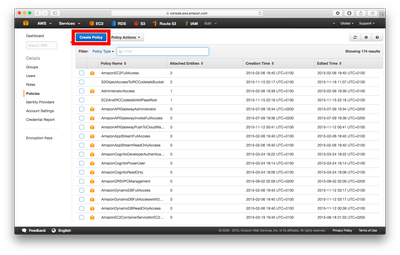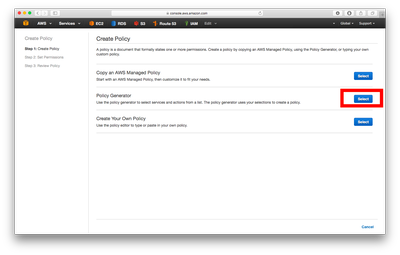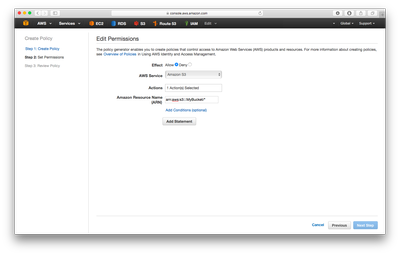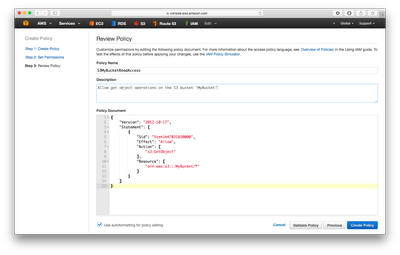S3 bucket specific policy

I have recently started caring a bit more about security on my AWS applications, and to this end Identity & Access Management (IAM) users are a great way to limit access to a need-to-use-only basis.
Recently I set up my IRC server to download its configuration and install files from an S3 bucket. This meant that it needed to have read access to a specific bucket, and for this an IAM role was created.
There are two ways to generate policies:
I will generally advise to either use the generator completely or at least use it for the basis of the policy you want to create.
Using the policy generator
To access the generator go into IAM -> Policies -> Create Policy -> Policy Generator.
You will then be able to create the policy. To do this, first set the AWS service to Amazon S3 and then choose the actions that you want to support. Here I've chosen GetObject as I just want to allow the read of an object in the bucket, and nothing more.
Finally, you need to set the ARN of your bucket. This will be something like arn:aws:s3:::YourBucketName/* to allow access to all elements in your S3 bucket named YourBucketName. It'll look a little something like in the left figure below.
Finally add the statement, and you can click next which should present you with something like the right image above.
Manually creating a policy
You can also skip the generator and create your own policy directly. This will get you into a window looking much like the 'Review Policy' image in the earlier section.
Here you just need to input a name, description and the policy document itself. You can either use the generator as a basis for this document or craft your own. The following is the one generated from the policy generator which can be directly used here.
1 2 3 4 5 6 7 8 9 10 11 12 13 14 15
Hopefully this will get you going and buff up your security on your AWS setup.



